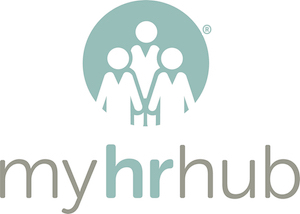Christmas Party HR Top Tips
Christmas is just around the corner and many companies will likely be planning the annual Christmas party. However, you may not be thinking about the dangers of employee misconduct.
Christmas parties may seem like the ideal opportunity for companies to allow their staff to let their hair down and dance the night away with their colleagues. That said, alcohol consumption, coupled with a relaxed social atmosphere, can foster situations which may not occur in the every-day office. Although such social gatherings are fundamentally a social and fun occasion they are also, as official company-organised events, an extension of the working environment.
What’s the legal angle?
Legally, companies have a duty to protect the health, safety and welfare of their employees. By extension, they can be liable for actions committed by employees in the course of their employment if they cannot demonstrate they took ‘reasonable steps’ to prevent it. This includes forms of misconduct at company-organised events. In other words, if employees behave in an inappropriate, aggressive or dangerous manner whilst at the party, your company may be responsible for their actions.
After party drinks?
Companies can also be liable for misconduct that takes place within ‘after party drinks’. Although these are technically not officially organised by the company, liability can still arise if it can be established that the employee’s conduct was sufficiently connected to their position. An example of this was seen in the recent case of Bellman v Northampton Recruitment Limited, where a manager had punched one of his employees in the face after they, along with some colleagues, had gone for further drinks at a local hotel when the Christmas party concluded. The Court of Appeal found that the company was liable for the actions of the manager as, although this occurred in an after party, all drinks and taxis had been paid for by the company and the manager was acting within his management capacity.
Is a Company Policy in place?
Whilst companies will want staff to have fun on the night, provisions should be in place to ensure behaviour doesn’t get out of hand. To this end, it is highly advisable to implement a policy which addresses office parties and work-related social events, outlining that staff have a duty to behave responsibly at all times. It is also advisable to issue individuals with a reminder that the organisation’s rules on acceptable behaviour will still apply at the event and that incidents of misconduct will be treated seriously. If an employee claims they have harassed by a colleague, swift action should be taken to deal with it in line with policy.
There are a number of ways companies can remind staff of the workplace rules that will take effect during the work-related event, and at any subsequent or follow-on event attended by members of staff. This remove the risk that an employee claims they have not read, received or understood the workplace policies on behaviour during the event.
Pre-communications?
Employees can be sent an invite letter in advance of the event to confirm the details of the event and to encourage their attendance. It would be advisable to send a brief letter/email to your employees with a reminder that:
- alcohol should be drank in moderation
- the use of illegal drugs is prohibited
- the expected standards of behaviour
- that behaviour in breach of workplace policies will be addressed after the event.
Closer to the event, you can remind staff of the internal workplace policies and where these are located. A simple email or verbal communication in a team meeting will usually suffice; it may also be useful to include a link to the online Employee Handbook or company intranet.
You can also consider whether any communication is necessary after the event. For example, where an incident occurred at the event and was witnessed by those attending, a communication confirming that this was addressed under the normal company rules will be a useful deterrent against this behaviour occurring at future events.
Staff behaviour at Christmas Parties
During the event itself, care must be taken to ensure that members of staff are not acting within their role as this means any actions undertaken whilst they are doing so are likely to be in connection with their employment. Care should be taken to ensure any workplace conversations are carried out on an equal footing as a social conversation; avoiding authority or management roles being exercised.
In order to ensure this, you can:
- send a letter to managers in advance of the event discouraging them from undertaking workplace conversations
- make managers aware that any workplace concerns mentioned during the event should be addressed during working hours, under the appropriate procedures
- remind staff that any workplace concerns should be brought to their managers attention during working hours.
It is a good idea to allocate a senior member of management to monitor and review the behaviour of staff. This will allow proactive action to be taken if it is assessed that incidents need addressing and ensures the matter is also witnessed by an appropriate eye-witness, allowing the matter to be dealt with formally after the event. It will be important to allocate this manager on a fair basis to avoid any complaints that they are not able to enjoy the event alongside their colleagues, such as using a rota system. Once the manager is allocated, this can be confirmed to members of staff to make them aware of which manager they can approach if they have concerns relating to the event itself.
Free alcohol anyone??
Social events are often an occasion to relax and socialise with co-workers meaning many individuals will be consuming alcohol during the event. Even though all attendees are likely to be adults, there is the risk that some may be under the legal age of drinking. If this is the case, then care should be taken to ensure that alcohol is not provided to those who are underage and that soft drinks are provided throughout the event.
Although attendees will be aware that their behaviour at the event should be appropriate, there is the potential that excessive consumption of alcohol may give rise to inappropriate incidents, such as sexual harassment, violence and/or acts which could bring your company’s reputation into disrepute.
In order to limit the risk of excessive alcohol consumption, and to counter a claim that excessive drinking was condoned or encouraged by the organisation, you can consider:
- limiting the number of free alcoholic drinks, for example, to one free drink on arrival
- providing greater numbers of free non-alcoholic beverages
- allocating a number of drinks vouchers which can be used to purchase alcoholic and non-alcoholic drinks
- avoiding the provision of free alcohol and holding ‘happy hours’ where all drinks are reduced in price.
Post Party arrangements
Most companies will be heavily involved with planning the arrangements for the event itself that they do not consider what will take place after the event. Some issues for companies to consider include:
- consider that subsequent or follow-on events attended by members of staff may be classed as work-related so the organisation could find itself vicariously liable for any incidents which occur after the event. To limit the risk, you can remind employees that attendance is on a voluntary basis, confirm workplace rules continue to apply and reiterate that workplace conversations are discouraged during this time.
- consider putting transport arrangements in place to prevent employees driving under the influence of alcohol. This could be, for example, encouraging a designated driver scheme for the event where these are provided with free soft-drinks, or making arrangements with local companies for reduced or fixed price public transport.
Zero Tolerance Policy
Where some companies fall down in stating that they have a zero-tolerance policy against issues such as bullying and harassment is that they may fail to address these issues when they do occur.
In circumstances where a report of inappropriate, discriminatory or unlawful behaviour is raised either during or after the event, this needs to be formally addressed within the business. The normal disciplinary procedures will apply to the matter and the organisation will be required to carry out a full investigation. This may involve interviewing a number of witnesses who were at the event, bearing in mind that some may have consumed alcohol. Where more than one alleged perpetrator is involved, the disciplinary treatment needs to be consistent to avoid claims of inconsistency.
Mostly enjoy! This is the time to celebrate a year of hard work and teamwork but keep focused on our tips above and have a great time!


Recent Comments